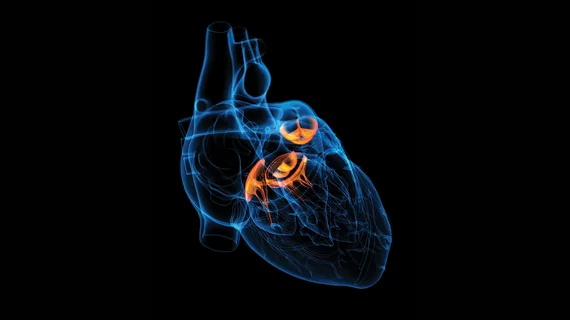FDA approves first AI-assisted cardiac MRI scanner
Los Altos, California-based HeartVista has gained approval from the Food and Drug Administration for its one-click heart MRI examination tool.
The company noted this week that, despite any advantages of such imaging tools in cardiac care, their use has been sparse. That’s because a lack of trained technologists, high costs and long scan times, among other factors. However, HeartVista’s MRI package aims to simplify the diagnostic process in an affordable, time-efficient manner.
A recent study in the New England Journal of Medicine found that noninvasive, myocardial perfusion cardiovascular MRI was just as effective as invasive fractional-flow reserve, a go-to means for addressing stable chest pain.
“This recent NEJM study further reinforces the clinical literature that cardiac MRI is the gold standard for cardiac diagnosis, even when compared against invasive alternatives,” Itamar Kandel, CEO of HeartVista, said in a statement. “We believe it will elevate the standard of care for cardiac imaging, enhance patient experience and access, and improve patient outcomes,” he added later.
The company’s cardiac package harnesses AI-backed software to prescribe the standard number of cardiac views with one click of a button. The software is able to identify when the image quality has not reached the accepted threshold. In that case, it prompts operators to reacquire images, where necessary. Plus, it provides preliminary measures of left ventricular function, volumes and mass.
HeartVista said it plans to highlight the new technology at the RSNA annual meeting in Chicago on Dec. 4 at 2 p.m. in the AI Showcase Theater.

